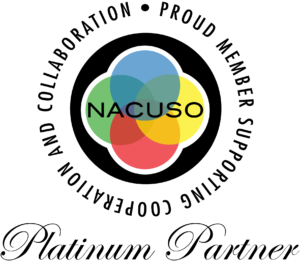Studying ANR/NSF fees
For about the last year or so we’ve been watching the buzz around so-called “junk fees” being charged to members. Every few months the buzz shifts to some new nuance. To say this is a moving target is an understatement.
As always, we look to our clients to guide us as to what they need and how the CUSO should invest. But since the target keeps moving, there are still as many opinions as there are observers. Our teams continue to study, and in 2023 started a series of Conversations on ANR/NSF Fees events (now under the Conversations on Deposit Operations & Member Service group) to brainstorm with credit union experts.
View slides from Conversations on ANR/NSF Fees (August 29, 2023)
View slides from Conversations on ANR/NSF Fees (January 10, 2023)
Ideas people are tossing around:
- Database changes to identify ANR vs. ODP used in authorizations? (currently there’s just one flag that is used for either/both – see “Other research we’ve done” below for more)
- Disclose to member via push notifications when ANR limits were used?
- More balance details stored in hold records?
- Wait to charge fees (daily monitoring vs. real-time)?
- More granularity for NSF fee options?
- Eliminate interactive fees altogether and charge club dues or other monthly fees that include overdraft services instead?
- Go back to creating an overdraft protection LOC on every checking account?
So what is a “junk fee” anyway?
The two biggest buzzes this summer have been fees for APSN (authorize positive, settle negative) debit card items, as well as fees for a check or ACH item that’s returned NSF but then gets presented again later on by the merchant.
ASPN
CU*BASE has no such thing as an “APSN” fee. The trick with these is that there is no specific data in any of the transaction handling files that identify a transaction this way, which means CU*BASE has no reliable indicators on which to build any fee waiver functionality. However, if your credit union does not authorize based on ANR limits, you may be able to effectively eliminate APSN fees by simply deleting your debit card ANR fee, since with that configuration all transactions that are authorized, are authorized positive and therefore can’t charge a fee even if they have to be posted negative.
If your auditor asks you to identify these and analyze that fee activity, see if they can tell you exactly what they’re looking for.
Re-presented Items
Many years ago we researched how to identify checks and ACH items that are re-presented after being returned NSF. At that time we did not have enough data to reliably identify these.
However, we recently found some new data elements on ACH items that are apparently being used more consistently now than before when a merchant re-presents a returned item. In most cases we are seeing the words “RETRY PYMT” (or something similar) within one of the extended transaction descriptions. However, this is still anything but a perfect process: we’re seeing typos like “RETYR” and “RETRR” as well, so unless we can identify every possible iteration and misspelling we might receive, some will likely still slip through the cracks.
(Interesting fact: Our research shows that PayPal originate five times as many of these retry items as any other merchant across our network.)
The Asterisk Intelligence team has created a Query that lists ACH retry transactions. Contact the AI team if you’d like a copy so that you can review and refund fees manually.
Status as of June 10, 2024: Project #63119 was implemented on June 9, 2024. CUs can use Tool #558 NSF/OD Transfer Configuration > Overdraft protection activation to activate a new option for ACH posting that will automatically waive any NSF/ANR/overdraft transfer fees for ACH debit items that are marked as “retry” by the merchant. Note that once you activate the flag, the change is immediate for all items currently in the warehouse and that are received going forward. Contact the Earnings Edge team if you’d like assistance with this change.
The most important thing to understand here is that we are completely at the mercy of outside merchants to code these re-presented items in a way we can catch in an automated fashion. We have analyzed enough transactions to have a pretty good idea of the most common ways these are being done. We’ll start with these findings and adjust over time as we see others that aren’t being caught. But no matter what we do, there will still be some that cannot be identified and will still slip through. We cannot warrant 100% success here.
Note: Our work is focused on ACH items. Since CUs can already handle re-presented share draft items manually, we will not be pursuing any changes to share draft processes at this time.
Other research we’ve done
Following our conversations in January, we’ve initiated some specific research projects on a few of the more popular ideas. Here’s a recap of some of these ideas:
- Separate the “Used ANR/ODP” flag on debit card transactions into two separate flags, then change posting programs to charge only when the ANR limit is used to authorize an item
This option was rejected after initial research showed it was incompatible with the way our infrastructure works with all vendors today. - Simply use the “Used ANR/ODP” flag as is, and change all posting programs to charge only when ANR and/or ODP amounts were used to authorize an item
A feasibility research project (#61023) has been completed, and our analysis shows this would require 820 hours of programming and testing effort. Given the investment required and the fact that the rules keep changing, senior management has elected not to proceed with this project at this time. - On ODP transfers, log a secondary transaction description that includes the available balance
Project #61741 is currently waiting for an available QC tester. - Add new fee options for NSF, similar to ANR (non-fee tolerance, daily cap, and fees by origin)
When we added the daily cap for ANR fees it required 700 programming hours plus QC testing. When we separated fees by origin code for ANR fees, the number was 1,200 hours. The non-fee tolerance change would likely to fall somewhere in the middle. And given that you’d still be charging fees, this investment might not give enough bang for the buck.
What can you do now?
- Make sure you understand exactly what your fee practices are. Review your configs, yes, but also your day-to-day procedures. Are you applying your rules consistently across the board?
- Make sure your disclosures match what you do! Some of the folks we’ve talked to who’ve run into snags find that adjustments to their disclosures were the only change they needed to make.
- Start thinking about new sources of fee or service income now. Even if you keep some form of ANR/NSF fee program, what if that income becomes a much smaller piece of the pie in the future?
Looking for new sources of income? Contact Earnings Edge for existing CU*BASE tools that might help!
Chefs for this recipe: Keegan Daniel, Jim Vilker, Dawn Moore

















We’ve viewed this as a very serious issue for some time. In Indiana, CU’s are being sued right and left. The APSN issue is significant. We are not confident in our position. There are several options listed above as suggestions. What are the leading candidates right now, and what is the timeline. Is there thought to being able to charge a fee for a negative account at the end of the day?
The NCUA Chair now has the votes he needs to mandate the changes he wants to these programs. Changes are coming quicker now. I believe CU*A needs to move more quickly on these issues.
We hear and understand your frustration. As you know, CU*Answers moves as a cooperative. The future of courtesy pay programs has been a topic for almost a decade, but there is still no consensus on a prudent investment for the CUSO to make on behalf of all clients. Given the mood of the buzz over the past couple years in particular, many CUs are deciding to analyze their income from these fees and strategize around reducing or removing the fees entirely.
As you can see from the news about “retry” transactions above, we do continue to narrow in on things we can actually attack. The challenge is that the rules keep changing, and development like this takes time. If we take on a project that requires 10-12 months of development, when it’s completed will the rules still be the same or will we need to toss out all that work because the rules no longer allow it?
You specifically mentioned a new fee for a negative account at the end of the day. Is that what your CU has determined to be the preferred solution? Would you be willing to sketch out how you think that could work? Think about what “end of the day” means, given that daily processing is not done at the exact same minute every day. Would there need to be waivers for some members? How would this work relative to Reg E opt in/out settings?
We will be setting up another Conversations on… event soon, so we hope you will bring your ideas to the group!
It seems clear that the end result of the NSF/ODP discussion will be: No APSN allowed, no multiple fees for the same item, and a safe-harbor max fee of $3-$14. The NCUA Chair has increased scrutiny for CU’s above $100 Million on this issue. (Article link https://www.cutoday.info/THE-feature/Agency-Has-Concerns-Over-Concentration-Risk: ) That will cover most CUA CU’s.
Our CU ($318M) is new to the CU*Base core processing system (converted ~6 1/2 months ago) and is extremely concerned about the APSN issue. Prior to conversion, we did not charge for APSN situations, so it has been very challenging for both our staff and our members to see fees being assessed when they previously were not. We pride ourselves in taking care of our members and doing what is in their best interest, so it is a hard pill to swallow to realize the core is not capable of preventing fees being charged when a member clearly had funds available at the time of the purchase.
Suggestions have been made to alleviate some of the fees we are charging our members. However, even if we implement some of those suggestions, it still doesn’t fix the issue…..members are being charged fees when funds were available at the time of the purchase. We just saw a situation internally where a member swiped his card 6 times ($1.15, $1.55, $1.90, $1.55, $1.15, $15.02), and all 6 charges were authorized on a positive balance. But, because he did not have money for his 7th swipe (and was willing to pay a fee for that particular one), he ended up with fees for every single one of those transactions. We have a maximum limit of 5 ODP fees that can be charged, so once he hit that limit, it started charging NSF fees……on DEBIT CARD transactions! Talk about confusing!
We do feel, if sued, we have no defense for our practices. It is also discouraging to see that CU*A could program this change into the core but chooses not to because it requires more programming hours than they feel is reasonable. In my opinion, the programming expense would be well worth preventing class action lawsuits that could have financial impact, as well as negative reputational impact, for both CU*A’s clients and the core processor itself.
We are finishing an NCUA exam, and the APSN situation is being discussed in our final report. One examiner explained that any lawsuits regarding APSN can be further escalated to the core processor if steps are not taken to prevent these UDAAP violations. Seems like it would be in all of our best interest to get the programming underway!
Thank you for your feedback. I can tell by your comments that you have read the content on this Kitchen page, and we appreciate your attention. And we do hear your concern and understand this is a important issue for many credit unions these days.
In fact we have been talking about this for well over a decade now. Our conversations with compliance and other industry experts indicate that for some time the writing has been on the wall that the days of these fees is coming to an end. Many CUs are already working on ways to shift this fee income elsewhere, electing to put on a white hat with their members to avoid becoming low hanging fruit for complaints, and trying other creative solutions rather than hanging on to something that is increasingly coming under the crosshairs for consumer groups.
We have spent considerable time and energy researching possible software solutions, talking to credit unions about creative ideas they are already undertaking, and discussing a prudent course of action for the CUSO to take. The most challenging part of all of this is the moving target. The mood keeps shifting and we have very real concerns that whatever change we make will be rendered irrelevant by additional pushback from the CFPB and other industry commentators. A very significant investment would likely have to be thrown away by the time we finish it, not to mention all of the work we wouldn’t be doing while we shift resources to that. Case in point: a couple months ago a bill was introduced in California that changes the rules yet again (something about requiring 5 days to elapse before you can even charge the fee).
We agree that “steps must be taken” but we disagree on what those steps should be. We do not believe it serves the CUSO and its client-owners to throw money at the latest restriction and hope that’s enough for them to leave us alone. We believe we haven’t seen the end of this push yet, far from it. As an example, what happens when the regulators realize that not feeing transactions in some cases while still feeing in others, is simply too confusing for consumers? Will they want every merchant in the country to retrofit their systems to ask the member’s permission at each swipe?
We’re also hoping CUs will get creative and move away from punitive fees, assessed at the time of the transaction. These are so much more complicated to code, especially given today’s fast pace, with so many different channels (ACH, P2P, online banking transfers, debit card, etc.) hitting an account all day long. Why not consider a completely new service? What if members could pay one monthly fee that entitles them to x overdrafts that month, free of charge? Since fees wouldn’t have to be posted immediately, the system could be set up to give members extra time to take care of the occasional oops or special need. So far we have yet to receive any specific feedback on that type of solution, but we stand ready to have the discussion any time!
As a side note, you mentioned that you have a limit of 5 ODP fees – I assume you are referring to the cap on ANR (non-return) fees, since our overdraft protection transfer (ODP) fee doesn’t have a cap like that. But a good ODP transfers program can be a great white hat option to consider. One suggestion that has worked for some CUs is to eliminate the fee on those transfers, implement a minimum amount for each ODP transfer (so a single transfer will cover more items), and consider dusting off the old-fashioned overdraft line of credit program.
I know this isn’t what you were hoping for, that a software change could somehow solve this problem once and for all. We believe the day is coming, sooner rather than later, when CUs will need to cut ties to this source of income, and the smart money is on programs that look at ways to provide the service that members need in a completely new way.
(By the way, I’m sure you saw that we have been able to address one of the concerns about re-presented or “retry” transactions. That project is in testing now and being targeted for release later this year. While there is no standard for how these transactions are submitted, nor a requirement for merchants to use any particular method, we believe this solution will at least catch the majority of them.)